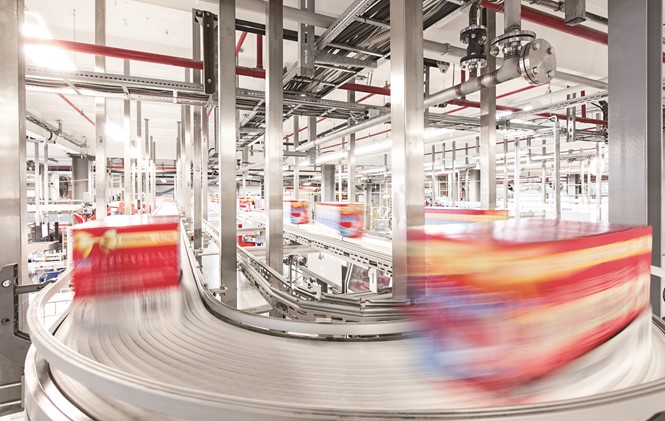Sustainable futures: Henkel

A longstanding European, family owned business, and now a multinational FMCG company, Henkel has a tradition of environmentally friendly practice. Hassan Butt explores Henkel’s 2030 goals and sustainability communications strategy
In 1908, Wilhelm II, German emperor and grandson of Queen Victoria, exacerbated Anglo-German relations by professing to Britain’s Daily Telegraph that, “You English are mad, mad, mad as March hares.” As the Kaiser’s diplomatic stature diminished, a faction of men dressed in white paraded the streets of Berlin, brandishing white umbrellas and slogans that spoke of a cleaner, trouble-free revolution.
Despite appearances of dissent, the men in white were not part of any protest mob, they showed no affiliation to any political cause or to nationalist or extremist groups. The men in white worked for Henkel.
After the development of its water glass and soda detergent, Henkel swiftly became one of Germany’s most established companies. Creating the world’s first ‘self-acting’ detergent in 1907, its flagship brand would come to be known as a household favourite, liberating domestic cleaning from the rigmarole of old. Persil, derived from its two main components, sodium perborate and sodium silicate, did the ‘work of the washboard,’ leaving material gleaming white, and giving Henkel the carte blanche to corner the market.
Opening the doors to uncharted advertising territory, Persil’s promotion went above and beyond. The men in white, served as the vanguard of Henkel’s advertising strategy. In 1922, German designer, Kurt Heiligenstaedt’s ‘White Lady,’ a matron-like phantom that symbolised the cleaning power of Persil, debuted. Five years later, Henkel took to the skies, commissioning aerial skywriting that lit up the continent. In 1956, Henkel would be the first commercial advert on German television, enshrining the beloved slogan, ‘With Persil, you know what you get.’
Beyond Persil, the company’s founder, Fritz Henkel, was keen to develop safer, smarter and more sustainable products. Since its inception in 1876, Henkel has been family run. In 1905, Hugo Henkel, the youngest of the Henkel sons, joined the company as a chemist, leading chemical products and technology, and the company’s sustainable drive. Prepared for the German Detergents Act of 1961, Henkel was quick to develop advanced technologies, creating low-foam surfactants in 1958 and, by 1964, permitting only biodegradable detergents.
In recent years, its continued its pledge to cultivate sustainable products throughout its business, which has led to a more integrated sustainability strategy. Publishing an annual environmental report since 1992, Henkel affirmed its commitment to the United Nations Global Compact in 2003. “Sustainability is one of our five corporate values, so it’s very deeply embedded in the company,” says Carole Scott, head of corporate communications at Henkel.
Today, Henkel’s goal is to achieve more with less. Its long term sustainability plan envisions all Henkel products being three times as efficient by the year 2030 – a 20-year goal set out in 2010. Yet one of the core issues with regards to sustainability for Henkel, hinges on the fact that 90% of the environmental footprint of its products is generated during their use. With more than 40% of its sales generated in emerging markets, achieving measurable results means striking a fine balance between communication and innovation.
“For employees directly, we have a sustainability ambassador scheme, set up in 2012. We’re aiming to have all 50,000 of our employees complete that training by this year. The idea of the programme is to through a training module which is designed to raise awareness of Henkel’s sustainability strategy. Therefore, even if you’re working in finance or customer care – away from production – you’ll understand what that sustainability strategy entails,” says Scott.

“We look at our products’ entire lifecycle – from the purchasing of raw materials, through production, logistics and all the way to consumption and packaging disposal. We want to persuade consumers to use our products in more sustainable ways through targeted communication”
With as much as 80% of Henkel’s workforce based outside of Germany, its global efforts to reach its sustainability goals lean heavily on collaboration. Recent awareness into palm oil extraction and its negative environmental impact, for example, has led to a widespread move to ban the production of palm-related plantations. Aware of the myriad consequences – the central claim being deforestation – Henkel’s response involves working closely with partners and palm oil farmers to achieve traceable and sustainable palm oil extraction.
Yet maintaining a climate-positive outlook is something that requires an ongoing initiative to raise awareness of the changing environmental landscape and implement its policies across Henkel’s vast product offering. “We look at our products’ entire lifecycle – from the purchasing of raw materials, through production, logistics and all the way to consumption and packaging disposal. We want to persuade consumers to use our products in more sustainable ways through targeted communication. Our retail partners also have an important role to play in communication with consumers,” says Kathrin Menges, executive vice president of human resources and head of the sustainability council at Henkel.
From smart packaging solutions to maximising the value chain, Henkel’s sustainability strategy is not only woven into the fabric of its brand, it’s dictating its future. In 2016, Henkel’s Adhesive Technologies business unit partnered with US-based innovative recycling company, TerraCycle. Producing previously unexplored recycling solutions, the partnership allows Henkel’s environmentally unfriendly packaging – notably, its Loctite anaerobic adhesive bottles – to be adequately repurposed, avoiding landfill or incineration.
With its eye firmly on communications, creating an efficient network of sustainable production continues to be top of the business agenda for Henkel. Rewarding suppliers and partners is another key tool used by the company in its journey to orchestrate sustainable practice. Its endeavours blossoming, the company has matured since the days of white umbrellas and skywriting. Its products continue to tick boxes and its sustainability strategy is doing its best to ensure those boxes are environmentally friendly.












